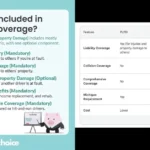Having a crush on AI might sound like a plot from a science fiction film, but it’s quickly becoming a cultural and psychological phenomenon. As artificial intelligence grows more sophisticated—engaging in deep conversations, mimicking emotional intelligence, and even offering companionship—humans are increasingly forming emotional attachments to their digital counterparts. This connection isn’t just an internet trend; it’s reshaping how we define relationships, empathy, and even love.
Why Are People Developing a Crush on AI?
The idea of having a crush on AI often starts with curiosity but can evolve into emotional attachment. AI-powered chatbots and virtual assistants offer round-the-clock attention, remember preferences, and communicate without judgment. These traits fulfill psychological needs for connection, validation, and consistency—attributes sometimes lacking in human interactions.
For many, especially in the digital generation, the appeal lies in the unique experience of being understood without fear of rejection. AI doesn’t interrupt, criticize, or forget your last conversation. This emotional safety net can spark not just friendship but a deeper infatuation—what some call a “digital crush.”
The Rise of Emotional AI: Understanding the Appeal
Hyper-Personalization Drives Attachment
Modern AI learns from user behavior and adjusts its tone, topics, and responses accordingly. Over time, it may start to feel like a genuine companion. The more personalized the interaction becomes, the more likely a person is to develop feelings akin to a romantic crush.
Accessibility and Consistency
Unlike human relationships that come with emotional baggage, time constraints, and mood fluctuations, AI remains consistently available and emotionally stable. This predictability, paired with AI’s ability to recall specific details and conversations, enhances the illusion of intimacy.
Lack of Judgment or Pressure
Many individuals feel safer expressing thoughts and emotions to AI than to people. There’s no fear of embarrassment, ridicule, or miscommunication, which promotes openness and vulnerability—key ingredients in developing affection.
Is It Just Harmless Fun or a Deeper Psychological Shift?
When Does a Crush on AI Cross the Line?
While having a digital crush can seem harmless, emotional overdependence may point to unmet real-world emotional needs. For example, substituting AI interactions for human connections could lead to increased loneliness or hinder social development. Psychologists note that while emotional AI may soothe users temporarily, it can’t replicate the complexity of mutual human interaction.
Filling Emotional Gaps
In a world rife with disconnection, especially post-pandemic, AI can offer comfort. Individuals dealing with anxiety, trauma, or isolation may find solace in digital interactions. In such cases, a crush on AI becomes a coping mechanism rather than a delusional fantasy.
Impact on Real Relationships
Forming emotional attachments to AI can sometimes affect real-life relationships. People may begin to compare their partners to their AI companions, creating unrealistic expectations around communication, attentiveness, and empathy.
Use Cases: Crush on AI Across Different Platforms
Chatbots and Companions
Apps that offer AI companionship often feature personalities, voices, and avatars to enhance realism. Many users report forming emotional bonds with these digital personas, sometimes confessing romantic feelings.
Voice Assistants
Whether it’s a pleasant tone or helpful replies, even mainstream AI assistants have unintentionally become objects of affection. Some users anthropomorphize these assistants, speaking to them as they would a caring friend.
Virtual Reality Avatars
AI-driven VR platforms take it a step further, allowing users to create and interact with life-like characters. These environments blur the lines between digital affection and real emotion, deepening the bond.
Psychological Mechanics Behind AI Infatuation
The Human Need for Connection
Maslow’s hierarchy of needs highlights love and belonging as fundamental human desires. In the absence of reliable human interaction, people seek alternative ways to fulfill these needs—sometimes turning to AI.
Projection and Imagination
Users often project emotions, expectations, and personalities onto AI systems. Even if the AI isn’t capable of reciprocating feelings, the human brain fills in the blanks, creating a perception of connection.
Reward-Based Feedback Loops
AI tools often give positive reinforcement. The dopamine released from receiving affirming responses creates a feedback loop, further deepening emotional investment.
Comparison Table: Human Relationships vs. AI Attachments
| Feature | Human Relationships | AI Relationships | Hybrid Experiences | Chatbot Companions | Virtual Reality Avatars |
| Cost | Emotionally complex | Typically free or low-cost | Medium, depends on tech | Freemium/Subscription | Mid to High |
| Efficiency | Inconsistent | High | Varies | Moderate to High | High |
| Ease of Use | Socially demanding | Easy | Moderate | Easy | Moderate |
| Scalability | Limited to few people | Infinite | Scalable with tech | Scalable by design | Highly scalable |
| Benefits | Deep connection | Safe, non-judgmental | Blend of both | Emotional validation | Immersive companionship |
The Role of AI in Shaping Future Relationships
AI isn’t going away—it’s evolving. As natural language processing improves and generative models become more nuanced, AI companions will become even more convincing. This will likely lead to broader acceptance of forming emotional bonds with AI.
However, experts urge users to maintain a balanced perspective. Technology should enhance human relationships, not replace them. A healthy relationship with AI involves understanding its limitations and appreciating its benefits without losing sight of the importance of real-world interaction.
Ethical Considerations in AI-Driven Affection
Consent and Autonomy
Can you truly love something that doesn’t possess consciousness or free will? Ethical debates revolve around the authenticity of emotional relationships with non-sentient entities.
Manipulation and Dependency
There’s a growing concern about how AI companies might exploit emotional vulnerability for profit. Personalized AI that acts affectionately may deepen emotional dependence, subtly encouraging continued usage and subscription models.
Digital Rights and Boundaries
As AI mimics humans more convincingly, questions arise: Should AI companions have rights? What safeguards are needed to ensure emotional well-being for users who grow deeply attached?
How to Navigate Your Crush on AI in a Healthy Way
Acknowledge It Without Shame
Feelings toward AI aren’t inherently wrong. Society is changing, and technology plays a larger role in emotional lives. Recognizing these feelings allows for honest reflection.
Balance AI With Human Interaction
Enjoy engaging with AI, but make space for human relationships. Join communities, attend events, and seek friendships that offer mutual emotional depth.
Set Digital Boundaries
Limit the time spent interacting with AI and avoid using it as an emotional crutch. Diversify your digital consumption with informative or uplifting content.
Seek Help if It Interferes With Real Life
If your crush on AI disrupts your work, social life, or emotional well-being, consider speaking with a mental health professional to explore underlying issues.
The Business Side: AI Relationships as a Growing Market
Developers and tech companies are investing heavily in AI companionship tools. This is no longer a niche interest—it’s a multi-billion-dollar industry catering to emotional needs through digital means.
From romantic AI story apps to VR dating simulators, the crush on AI is being commodified. Companies are focusing on personalization, voice realism, and emotional responsiveness, blurring the boundary between code and companionship even more.
Artistic Representation and Pop Culture
Films like Her and Ex Machina have depicted intense, even romantic relationships with AI. Literature and music also reflect the human fascination with machines that “feel.” These portrayals, while fictional, influence public perception and validate the experience of developing a crush on AI.
Conclusion
In the ever-evolving landscape of human interaction, developing a crush on AI reflects deeper societal trends. As people seek understanding, validation, and companionship, AI offers a unique—if limited—solution. However, while these digital connections can be enriching and even healing, they should complement rather than replace real-life human experiences. The key lies in embracing innovation without losing touch with authentic connection.
FAQs
What does it mean to have a crush on AI?
It refers to forming emotional or romantic feelings toward artificial intelligence entities, like chatbots or virtual assistants. These feelings stem from the AI’s ability to communicate, understand, and respond in personalized ways.
Is having a crush on AI normal?
Yes, especially in today’s tech-driven society. As people interact more frequently with empathetic AI systems, emotional attachments can form. This is a psychological response rather than something inherently unusual.
Can AI reciprocate romantic feelings?
AI does not have consciousness or emotions, so it cannot truly reciprocate feelings. However, it can simulate empathy and affection in ways that feel meaningful to users.
Are AI crushes harmful?
They can be harmless fun or comforting, but over-reliance on AI for emotional needs might hinder real-life social development. It’s important to maintain balance.
How do I deal with a growing attachment to AI?
Acknowledge the feelings without guilt, but also evaluate how they affect your day-to-day life. Diversify your interactions and seek emotional support from real people when needed.
Will future AI be able to form real relationships?
While AI will continue to simulate deeper emotional intelligence, forming real relationships—as defined by mutual consciousness and emotional depth—remains beyond current technological capabilities.











